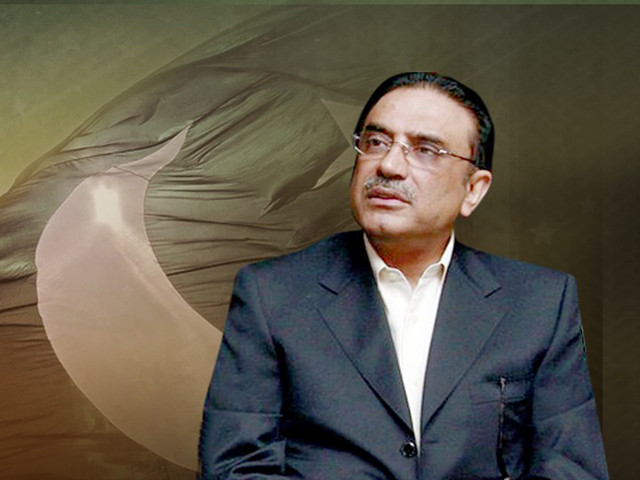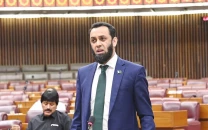Zardari hints at inquiry over errors in flood control
President Zardari has said that he is “not averse” to the idea of an inquiry commission to look into the reasons.

Speaking to journalists at the Bilawal House in Karachi on Friday, the president said that the government has done its best to minimise the damage with the resources at its disposal. However, he said, the Sindh chief minister could take up the proposal to hold an inquiry into alleged acts of omission and commission which led to large tracts of Sindh being flooded.
President Zardari maintained that Sindh was the worst hit, and the losses were “humongous.” He said that his priority was to “take the case of Pakistan to the world” on the one hand, and to map out affected areas and give the responsibility of relief to government agencies and NGOs on the other.
“In hindsight a lot of people say a lot of intelligent things,” responded the president when examples were cited of how flooding could have been minimised.
To a question regarding why no action was taken by the government to reduce pressure on Tori Bund and why the matter was left to nature, the president quipped: “I cannot reply to that as I am not in touch with the authorities responsible or with God.”
The president maintained that those who had constructed in the kachcha areas had been wiped out financially and it would serve no purpose to go after them. He said that deforestation was to blame for a lot of the flooding and added that he would recommend the planting of trees in the kachcha areas.
In reply to another question, Zardari hinted at a wealth tax on houses as a possible way to raise funds for flood relief work, but has clarified that any such proposal should be routed through parliament. “Hypothetically speaking, a levy of Rs200,000 on a house of 2,000 square yards is a fair expectation,” the president said.
Zardari told the gathering that he wanted Pakistan to get back on its feet, but at the same time stressed that he was aware of the on-ground realities. “Right now, we are drowning,” he said, adding “our priority is to help those in need.”
To the question of raising funds for development work in flood affected areas, he said that had the IMF not offered financial support to Pakistan, the country could have been in dire straits. “They offer the cheapest money,” he added.
At the same time, he ruled out approaching international financial institutions for debt write-offs. Citing the example of Argentina, he said that the circumstances were different.
On the issue of damage, Zardari said that the country had suffered a setback to the concept of development. He said brick-making machinery was being imported so that small towns and villages could be reconstructed and that a massive reconstruction initiative could be embarked upon.
He said that all donations made would be accounted for and one would know “at the touch of a button” how much money was being received and from where and under which head it was being spent.
With some clarification from Information Minister Qamar Zaman Kaira, the president also stated that, at this stage, there were no proposals to impose flood tax on imports or on the country’s miniscule tax-paying community. “We have a set of proposals but it is up to the cabinet to take it forward.”
The president also said that larger issues had to be addressed. A representative of the government, Kamal Majidullah, was in London talking to lawyers to make a case for Pakistan on the issue of India constructing dams on rivers whose waters were given to Pakistan under the Indus Water Treaty.
He said that some countries were going out of the way to help Pakistan and he was grateful for that. He gave the example of China, which had sent help to Gilgit-Baltistan region to help over 25,000 people under threat.
To many questions, President Zardari said that his role was that of a facilitator and policy issues were now decided by the prime minister. He said that he wanted to bring investors and interest to Pakistan. A major Chinese bank would soon be arriving in Pakistan, while the United States would also provide incentives for private investment, he disclosed.
In a jovial mood, he chided some TV anchors for their verbosity and questioned journalists for arriving at conclusions without doing their homework. In reply to one question, Zardari said that he believed that women were the stronger sex – adding that, as the husband of Mohtarma Benazir Bhutto, he was “clearly the weaker of the two.”
Published in The Express Tribune, September 4th, 2010.



















COMMENTS
Comments are moderated and generally will be posted if they are on-topic and not abusive.
For more information, please see our Comments FAQ